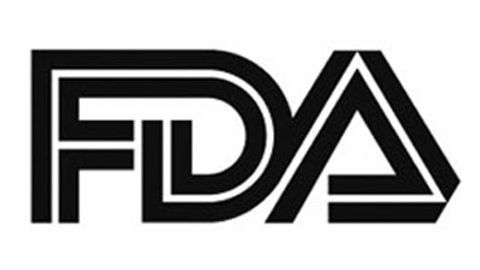FDA Grants Fast Track Designation to STRO-002 for Ovarian Cancer
The FDA has granted a fast track designation to the folate receptor alpha-targeting antibody-drug conjugate, STRO-002, for the treatment of patients with platinum-resistant epithelial ovarian, fallopian tube, or primary peritoneal cancer who have received 1 to 3 prior lines of systemic therapy.

The FDA has granted a fast track designation to the folate receptor alpha (FolRα)-targeting antibody-drug conjugate, STRO-002, for the treatment of patients with platinum-resistant epithelial ovarian, fallopian tube, or primary peritoneal cancer who have received 1 to 3 prior lines of systemic therapy.1
Further collaboration with the FDA will ensue to develop STRO-002 to potentially fill an unmet medical need for therapeutic options for this patient population, the developer of STRO0002, Sutro Biopharma, Inc, announced in a press release.
"We are pleased with the FDA's decision to grant fast track designation for STRO-002 and welcome the opportunity to have more frequent interactions with the agency," said Arturo Molina, MD, chief medical officer of Sutro Biopharma, in the release. "We continue to be enthused by the potential of the STRO-002 program, which has shown encouraging preliminary activity and tolerability in our phase 1 dose-escalation study in ovarian cancer, and plan to continue to work with the FDA to potentially accelerate our clinical and regulatory efforts."
The single-arm, dose-escalation trial of STRO-002 showed early signals of efficacy in 39 patients with ovarian cancer treated in a phase 1 clinical trial (NCT03748186), which is evaluating the safety, pharmacokinetics, and preliminary efficacy of the drug, according to interim analysis results reported in 2020. The population was heavily pretreated with a median of 6 prior lines of therapy. Previous therapies included standard of care platinum-based chemotherapy combinations, bevacizumab (Avastin), PARP inhibitors, and checkpoint inhibitors.2
Of the 34 patients who were treated with STO-002 at 2.9 mg/kg or higher, 31 were evaluable for efficacy. Responses per RECIST v1.1 were observed in 10 patients, which consisted of 1 complete response and 9 partial responses (PRs). Notably, at data cutoff, 6 of the PRs remained unconfirmed.
Disease control was measured at weeks 12 and 16. These assessments showed that 74% of patients achieved disease control at 12 weeks, and the 16-week disease control rate was 58%. In terms of treatment duration, 13% of patients were on treatment for 52 weeks, and 3 continued treatment beyond 64 weeks.
Investigators considered STRO-002 to be well-tolerated. Treatment-emergent adverse events (AEs) were grade 1 or 2 in 86% of patients. No ocular toxicity occurred thus far in the study; however, prophylactic corticosteroid eye drops have been administered to patients. The most common grade 3/4 AE was neutropenia, which was reversible. Standard medication was also administered to the 15.4% of patients who experienced grade 3 arthralgia and the 7.7% who experienced neuropathy.
The phase 1 study of STRO-002 for the treatment of ovarian and endometrial cancer is ongoing. The aim of part 1 of the dose-escalation portion of the study is safety determined by TEAEs, determining the recommended phase 2 dose, and defining the maximum tolerated dose. The secondary end point is pharmacokinetics. In part 2 of the dose-expansion portion of the trial, the coprimary end points include preliminary anti-tumor activity in the subgroup of patients with ovarian, fallopian, and primary peritoneal cancer, as well as preliminary anti-tumor activity in the endometrial cancer cohort. The secondary end points of part 2 include the incidence of TEAEs, duration of response, progression-free survival, the preliminary effect of STRO-002 treatment on CA-125 level, and pharmacokinetics.3
The study is actively recruiting up to 160 adult patients at 21 locations across the United States. To enroll, patients must have a confirmed diagnosis of either cancer type; an ECOG performance status of 0-1; a life expectancy of > 3 months; and adequate bone marrow, liver, and renal functions. All toxicities from prior therapies patients must be resolved to grade 2 before enrolling in the study. All patients must have fresh or archived tissue for on-study biopsies.
References:
1. Sutro Biopharma announces STRO-002 FDA fast track designation for patients with advanced ovarian cancer. News release. Sutro Biopharma. August 18, 2021. Accessed August 18, 2021. https://bit.ly/3yYrED1
2. Sutro Biopharma announces encouraging interim data on STRO-002 phase 1 dose-escalation study for patients with ovarian cancer. News release. Sutro Biopharma. December 3, 2021. Accessed August 18, 2021. https://bit.ly/3AWtRPV
3. Study of STRO-002, an anti-folate receptor alpha (FolRα) antibody drug conjugate in ovarian & endometrial cancers. Clinicaltrials.gov. Accessed August 18, 2021. https://bit.ly/3mbfGCn